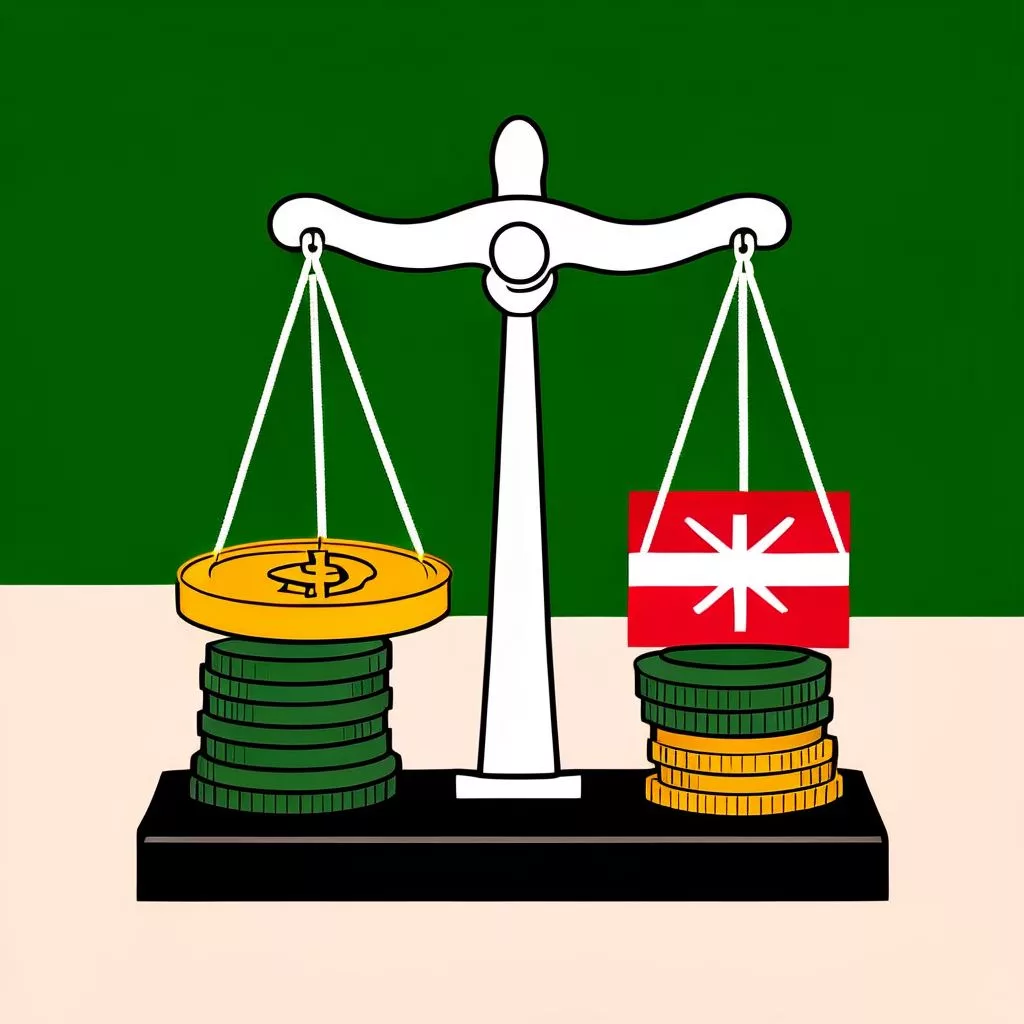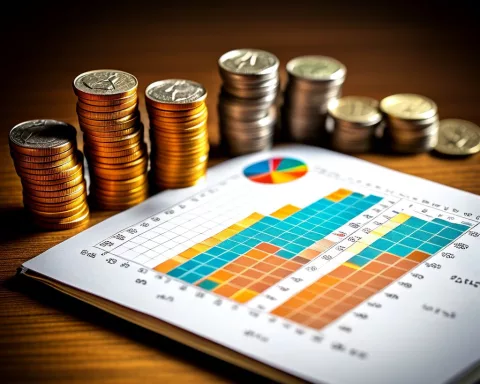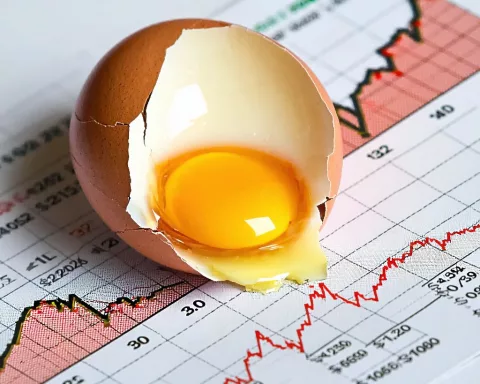South Africa’s economy is at a crucial point, with exciting but uncertain changes ahead. The Reserve Bank might cut interest rates soon, which could help families and businesses. However, challenges like a proposed VAT increase and tricky relations with the U.S. add to the complexity. While inflation looks good now, many people worry about future growth, with forecasts suggesting slow recovery. As the country waits for important decisions, the mix of local culture and global ties will shape its economic journey.
What is the current economic situation in South Africa?
South Africa’s economy is at a pivotal point, facing uncertainties amid low inflation and a potential interest rate cut by the Reserve Bank. Factors like proposed VAT increases, strained U.S. relations, and mixed growth forecasts complicate the landscape, impacting both households and businesses.
The Reserve Bank’s Impending Decision
South Africa stands at a critical juncture as its economy faces enduring uncertainties. All eyes are on the Reserve Bank, which is expected to announce a potential interest rate cut. This move follows a series of three similar reductions since September 2024, as reported by Cape {town} Etc. The anticipated decision holds significant repercussions for both businesses and households, potentially altering the economic landscape in multifaceted ways.
The context in which the Reserve Bank is making its decision is worth noting. South Africa’s headline inflation currently lies comfortably within the South African Reserve Bank (SARB) target range of 3% to 6%. It has even dropped below the midpoint target of 4.5%, creating a favorable inflation scenario. However, this positive outlook is juxtaposed with a slew of complex economic sentiments influenced by external factors. According to Izak Odendaal, an investment strategist at Old Mutual Wealth, South Africa’s relationship with the United States has hit a low. This strained relationship is further complicated by the impact of trade policies enacted by U.S. President Donald Trump, as highlighted by the Daily Investor. These international relations add another layer of unpredictability to South Africa’s economic future.
The Looming VAT Increase and Inflation Expectations
Adding to the economic intricacies, Finance Minister Enoch Godongwana has proposed a Value Added Tax (VAT) hike, set to be implemented in May. This 0.5 percentage point increase introduces another variable for market stakeholders to ponder as they navigate the interplay between inflation and fiscal policies. Recent surveys provide some insight into this complex environment. For instance, the Bureau for Economic Research (BER) conducted a survey showing a slight downward adjustment in inflation expectations. The forecasted headline consumer inflation for 2025 has reduced marginally from 4.5% to 4.3%. This minor adjustment comes despite a small rise in inflation between October and January, from 2.8% to 3.2% annually.
Looking ahead, inflation expectations for 2026 remain stable at 4.6%, with a new projection of 4.7% for 2027—marking the first time this rate has been surveyed. Different social groups offer varying perspectives on these figures. Business leaders estimate inflation at 4.6% for the current year, rising to 4.8% over the next two years. Contrarily, trade union officials foresee a more troubling trend, predicting inflation to hit 4.5% in 2025 and escalating to 5.0% by 2027.
Meanwhile, households have also adjusted their inflation expectations significantly. They now anticipate a reduction to 5.7% over the next year, down from 6.6% recorded in the previous quarter. This tempered expectation aligns with their revised projections regarding wage growth, now estimated at 4.5% for the current year, reflecting a 0.4 percentage point decrease from earlier forecasts.
Economic Growth Projections and Historical Context
When it comes to economic growth, the BER survey respondents predict a slight decline, with growth projected at 1.2% in 2025, down from the previously anticipated 1.5%. The forecast for subsequent years suggests a sluggish pace of economic recovery, with growth expected to rise to only 1.4% by 2026. This convergence of economic indicators paints a mixed picture, presenting both opportunities and challenges for the nation.
To better understand the present economic climate, it is useful to consider historical and philosophical movements that have shaped economic thought. The Enlightenment period, characterized by an emphasis on reason and the scientific method, produced thinkers like Adam Smith. Smith laid the groundwork for modern economics with his seminal work, “The Wealth of Nations,” published in 1776. His concepts, such as the division of labor and the invisible hand of the market, remain relevant today, reminding us of the broader economic forces at play.
In a more modern context, the post-World War II era saw the rise of Keynesian economics, pioneered by John Maynard Keynes. Keynes advocated for active government intervention in the economy, especially during downturns. His ideas influenced economic policies for decades, shaping how governments approach fiscal and monetary matters. South Africa’s current strategies, including the Reserve Bank’s interest rate decisions and the proposed VAT hike, can be viewed through the lens of these historical economic theories.
The Cultural and Global Dimension
Economic conditions are not solely dictated by policy and theory; culture and the arts also play a pivotal role. The 1920s, for example, saw the Harlem Renaissance in the United States, a cultural movement that celebrated African American culture and coincided with economic prosperity. This period of creativity and innovation illustrates the symbiotic relationship between culture and the economy. In South Africa, a vibrant arts scene continues to flourish, offering a counterpoint to economic uncertainties. Festivals, galleries, and performances not only act as economic drivers but also reflect the nation’s resilience.
Adding to these historical and cultural perspectives is the ever-important global economic landscape. South Africa’s economy is interwoven with international trade and relations, making it susceptible to external influences. The strained relations with the United States, compounded by trade policies, highlight the interconnectedness of global economies. Decisions made by major economic powers can have far-reaching impacts, affecting everything from currency exchange rates to foreign investment flows.
As the Reserve Bank prepares to announce its decision on interest rates, businesses and households find themselves in a landscape marked by cautious optimism and uncertainty. This period requires astute decision-making and a nuanced understanding of both local and global economic factors. The actions of the Reserve Bank will undoubtedly shape the country’s economic trajectory, influencing everything from consumer spending to business investment.
The Path Forward
The anticipation surrounding the Reserve Bank’s announcement underscores the importance of monetary policy in steering economic outcomes. It serves as a reminder that in the realm of economics, decisions are seldom straightforward. They involve a delicate balance between various competing interests and objectives. As South Africa stands on the brink of potentially significant economic changes, the lessons of history, the vibrancy of its culture, and the intricacies of global relations will all contribute to shaping the nation’s path forward.
“`markdown
What is the current economic situation in South Africa?
South Africa’s economy is at a pivotal point, facing uncertainties amid low inflation and a potential interest rate cut by the Reserve Bank. Factors such as proposed VAT increases, strained U.S. relations, and mixed growth forecasts complicate the landscape, impacting both households and businesses.
What decision is the Reserve Bank expected to make soon?
The Reserve Bank is anticipated to announce a potential interest rate cut, following a series of three similar reductions since September 2024. This decision could have significant repercussions for businesses and households, potentially altering the economic landscape in various ways.
How is inflation currently affecting the economy?
Headline inflation in South Africa is comfortably within the South African Reserve Bank’s target range of 3% to 6%, having even dropped below the midpoint target of 4.5%. However, despite this favorable inflation scenario, concerns persist regarding future economic growth and recovery.
What are the implications of the proposed VAT increase?
Finance Minister Enoch Godongwana has proposed a Value Added Tax (VAT) hike of 0.5 percentage points, set to be implemented in May. This increase introduces another variable for market stakeholders, as it may affect inflation rates and consumer spending.
How do current economic forecasts look for South Africa?
The Bureau for Economic Research survey suggests a slight decline in economic growth, projecting it at 1.2% in 2025, down from a previously anticipated 1.5%. The slow recovery is expected to continue, with growth only rising to 1.4% by 2026, indicating a mixed economic outlook.
What cultural factors influence South Africa’s economy?
Cultural and artistic movements, such as festivals and performances, play a significant role in the South African economy. They not only drive economic activity but also provide resilience in the face of uncertainties. The interconnectedness of culture and economy highlights the broader economic forces at play, especially in a country with a rich cultural heritage.
“`












